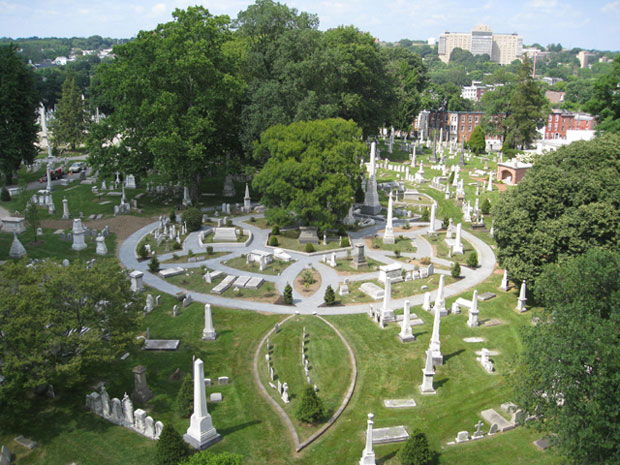
Preserving Our Historic Cemeteries
By Julie Williams, Staff Writer
Most of us have the mindset that “new is better.” We all want to keep up with the most modern and up-to-date trends. But in keeping this mindset, we must not forget those before us—those who paved the way to our modern trends. The focus of this article is to highlight the federal, state, and local efforts that work to protect our historic cemeteries.
Federal Efforts
The main crux of federal efforts to preserve cemeteries lies within five federal laws that focus on historic preservation in general:
The Antiquities Act of 1906: As the earliest federal historic preservation law, this prohibits the unauthorized excavation, removal, or defacement of objects of antiquity on public lands. [1].
The Historical Sites Act of 1935: This law declares that it is a national policy to preserve for public use historical sites, buildings, and objects of national significance. [1].
The National Historic Preservation Act of 1966: This authorizes the National Park Service to maintain a National Register of Historic Places. When a site is listed on the register, federal agencies are required to consider the effects of their actions on the site. [1].
The Archaeological Resources Protection Act of 1979: This act functions to regulate the excavation and removal of archaeological resources on federal or Indian land. [1].
The Native American Grave Protection and Repatriation Act of 1990: This law protects Native American ancestral human remains and cultural items found on federal or Indian lands. [1].
State Efforts
While all states have some laws in effect that protect historic cemeteries and burial sites to some degree, they vary widely.
In Georgia, state laws protect burial sites from disturbance. No Georgia law prohibits development around a historic cemetery, nor sets out any buffers between the development and the cemetery. Therefore, a developer whose project will not impact the actual cemetery is not required to take any action in regards to the site. Likewise, a private landowner is only required to not disturb the graves, but hold no responsibility to clean up or maintain the cemetery. [2].
Also under Georgia law, private landowners are not required to grant access to persons who are not heirs or descendants of the persons buried in the cemetery. While it is not specifically stated in a statute, Georgia case law has developed to mean that the heirs of those buried on the site have an implied easement onto the property. [2].
In Pennsylvania, laws protect historical cemeteries and burial grounds from being taken by eminent domain or water authority, unless a court approves of the action. Even so, the entity taking the land bears the cost and responsibility of relocating the graves and headstones. [3].
In 1972, Pennsylvania passed the Burial Grounds Title 9 act, which declares that “permanent lot care fund” must be established. The fund should be used for care, maintenance, and preservation of the cemetery or burial ground. [3].
In comparing these two states, it appears that Pennsylvania has taken more stringent steps in writing laws, which protect these historic sites. On the other hand, Georgia has taken a more generalized stance, by prohibiting the sites from disturbance. These two paths represent the discrepancies that lie within the different states and why some cemeteries and burial grounds are in greater despair than others.
Local Efforts
In most states, city and county governments are responsible for enforcing state laws regarding historic cemeteries. This responsibility is written in some states’ statutes, while the responsibility has been mandated by the courts in other states. Many local regulations and ordinances also work to preserve and protect these sites.
***
While there are laws protecting and preserving our historic cemeteries and burial grounds, the question remains as to whether they are truly enforced, and if they are enforced, to what degree? The history of this nation is bountiful and we should all make a strong effort in order to protect the resting places of those before us.
Sources:
[1]: http://www.loc.gov/law/help/historical-cemeteries/#usa
[2]: http://georgiashpo.org/historic/cemeteries
[3]: http://www.phmc.state.pa.us/portal/communities/cemetery-preservation/laws/pennsylvania-laws.html